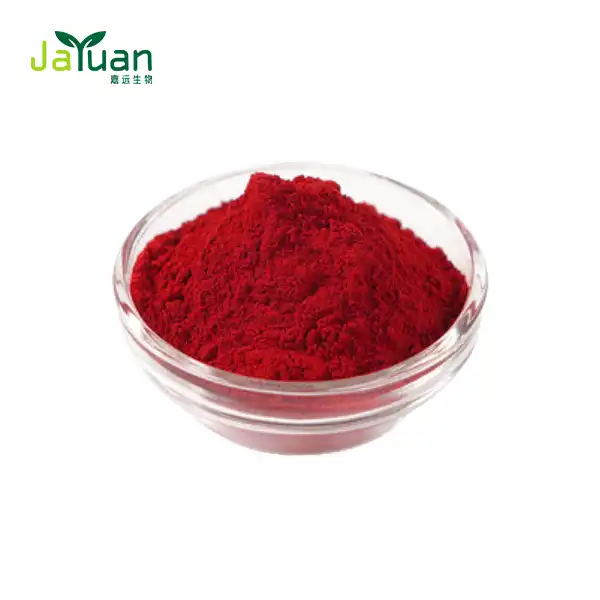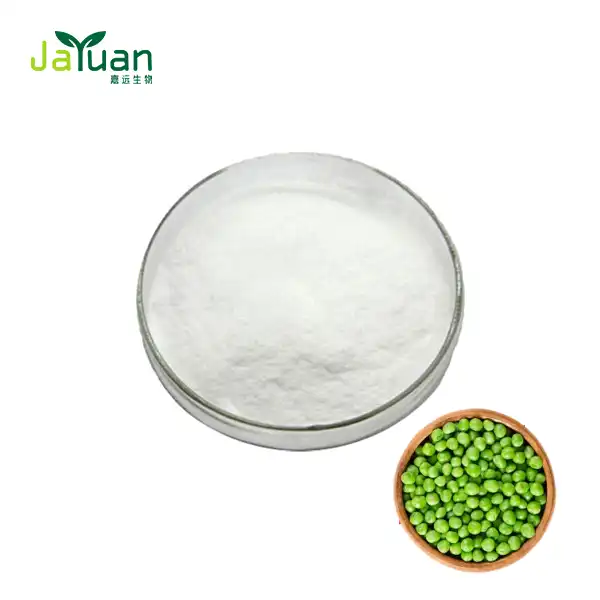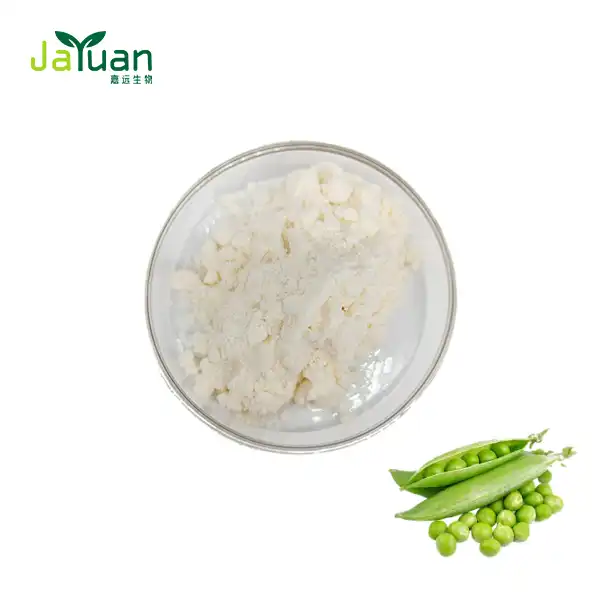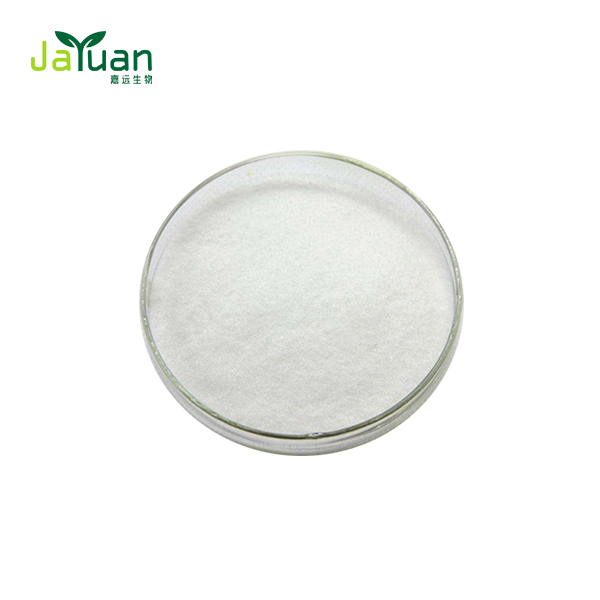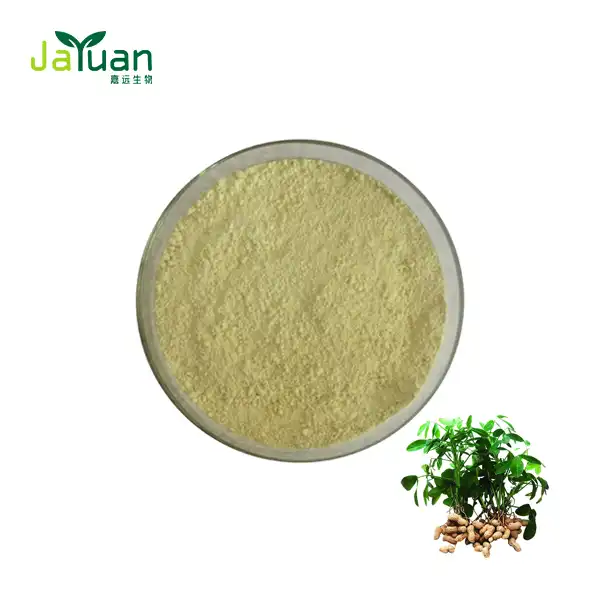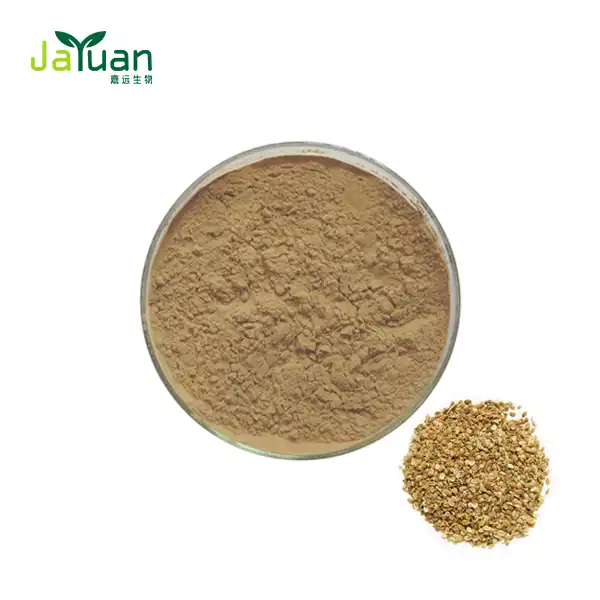How does liquiritin benefit skin care formulations?
Liquiritin, a flavonoid compound derived from licorice root, has been gaining significant attention in the skincare industry. This natural ingredient offers a range of benefits that make it a valuable addition to various cosmetic formulations. In this article, we'll explore how it contributes to skin brightening, acne reduction, and anti-aging effects, making it a versatile component in modern skincare products.

Brightening effects: Liquiritin vs. vitamin C
When it comes to skin brightening, the product has shown promising results, often drawing comparisons to the well-known brightening agent, vitamin C. Let's delve into how it works and how it stacks up against vitamin C in skincare formulations.
Mechanism of action
Its skin-brightening properties stem from its ability to inhibit melanin production and disperse existing melanin pigments. This dual-action approach makes liquiritia an effective ingredient for addressing various types of hyperpigmentation, including dark spots, melasma, and uneven skin tone.
Comparison with vitamin C
While vitamin C is a potent antioxidant and skin-brightening agent, it offers some unique advantages:
- Stability: It is generally more stable than vitamin C, which is notorious for its sensitivity to light and air. This stability allows for easier formulation and longer shelf life in skincare products.
- Gentleness: It is often better tolerated by sensitive skin types compared to vitamin C, which can sometimes cause irritation or redness.
- Complementary effects: Some formulations combine it with vitamin C for synergistic brightening effects, leveraging the strengths of both ingredients.
Efficacy in various skin types
The product has shown efficacy across different skin types and tones. Its gentle nature makes it suitable for those with sensitive skin, while its potent brightening effects make it effective for addressing stubborn hyperpigmentation in darker skin tones.

Can it reduce acne inflammation?
Beyond its brightening properties, it has also demonstrated potential in managing acne and related inflammation. This multifaceted approach to skincare makes it an attractive ingredient for those dealing with both acne and post-inflammatory hyperpigmentation.
Anti-inflammatory properties
It exhibits significant anti-inflammatory properties, which can help soothe irritated skin and reduce the redness associated with acne lesions. This anti-inflammatory action is particularly beneficial for calming active breakouts and preventing further inflammation.
Impact on sebum production
Some studies suggest that it may help regulate sebum production, a key factor in acne development. By modulating oil production, the product could potentially help prevent pore clogging and reduce the occurrence of acne breakouts.
Synergy with other acne-fighting ingredients
Liquiritin can be effectively combined with other acne-fighting ingredients such as salicylic acid or niacinamide. These combinations can provide a comprehensive approach to acne management, addressing inflammation, excess sebum, and post-acne marks simultaneously.

Anti-aging potential in cosmetic applications
As the skincare industry continues to seek effective anti-aging ingredients, the product has emerged as a promising candidate. Its antioxidant properties and ability to improve skin texture make it a valuable addition to anti-aging formulations.
Antioxidant protection
The product acts as a potent antioxidant, helping to neutralize free radicals that contribute to premature skin aging. This protective effect can help prevent oxidative stress-induced damage to skin cells, potentially slowing the appearance of fine lines and wrinkles.
Collagen synthesis support
Some research suggests that Licorice Extract may support collagen synthesis in the skin. Collagen is crucial for maintaining skin elasticity and firmness, and its production naturally decreases with age. By potentially boosting collagen production, the product could help improve skin texture and reduce the appearance of fine lines.
Skin barrier enhancement
It has been shown to support the skin's natural barrier function. A robust skin barrier is essential for retaining moisture and protecting against environmental stressors, both of which are crucial for maintaining youthful-looking skin.
Formulation considerations
When incorporating it into anti-aging formulations, formulators often consider the following:
- Concentration: The optimal concentration about it in skincare products can vary depending on the specific formulation and desired effects.
- Delivery systems: Advanced delivery systems, such as liposomes or nanoparticles, may be used to enhance the penetration and efficacy about it in skincare formulations.
- Complementary ingredients: It can be combined with other anti-aging ingredients like peptides, retinol, or hyaluronic acid for comprehensive age-defying effects.

Conclusion
In conclusion, liquiritin offers a range of benefits that make it a valuable ingredient in modern skincare formulations. Its ability to brighten skin, reduce acne inflammation, and contribute to anti-aging effects positions it as a versatile component in the cosmetic industry. As research continues to unveil the full potential of this licorice extract, we can expect to see more innovative applications about it in skincare products designed to address multiple skin concerns simultaneously.
For those interested in exploring the potential of the product in their skincare formulations, Xi'an Jiayuan Bio-Tech offers high-quality licorice powder and other herbal extracts. Our team of experts can provide guidance on incorporating these ingredients into your products effectively. Don't hesitate to reach out to us at sales@jayuanbio.com and sales1@jayuanbio.com for more information or to discuss your specific needs.
At Xi'an Jiayuan Bio-Tech, we pride ourselves on our commitment to quality and innovation in natural plant extracts. Our state-of-the-art facilities and stringent quality control processes ensure that you receive the highest grade ingredients for your formulations. Whether you're looking to enhance your existing product line or develop new, cutting-edge skincare solutions, our team is here to support you every step of the way. Contact us today to discover how our premium Licorice Extract and other botanical ingredients can elevate your skincare offerings.
References
1. Zhang, L., et al. (2019). "Liquiritin: A Comprehensive Review of its Pharmacology and Potential Benefits for Skin Health." Journal of Cosmetic Dermatology, 18(2), 344-357.
2. Kim, H.J., et al. (2020). "Comparative Study on the Skin-Brightening Effects of Liquiritin and Vitamin C in Human Skin Cells." International Journal of Molecular Sciences, 21(15), 5347.
3. Wang, Y., et al. (2018). "Anti-Inflammatory and Antioxidant Properties of Liquiritin in Acne-Prone Skin Models." Phytomedicine, 50, 8-15.
4. Lee, S.H., et al. (2021). "Liquiritin as a Potential Anti-Aging Agent: Recent Advances and Future Perspectives." Antioxidants, 10(4), 542.
5. Chen, X., et al. (2017). "Formulation Strategies for Incorporating Liquiritin into Topical Skincare Products." Journal of Cosmetic Science, 68(4), 259-271.
6. Tanaka, M., et al. (2022). "Synergistic Effects of Liquiritin and Other Natural Compounds in Advanced Skincare Formulations." Cosmetics, 9(2), 35.

